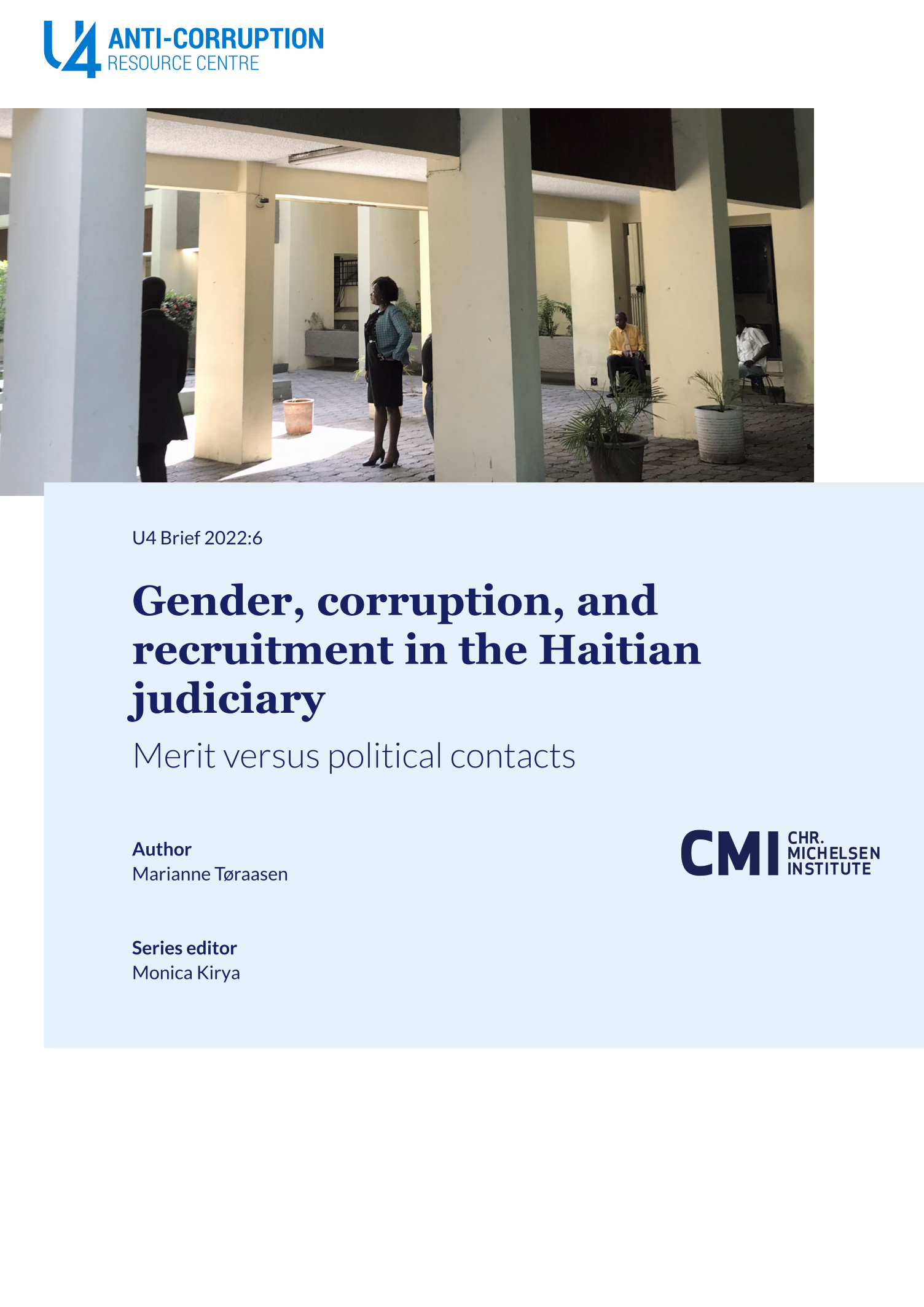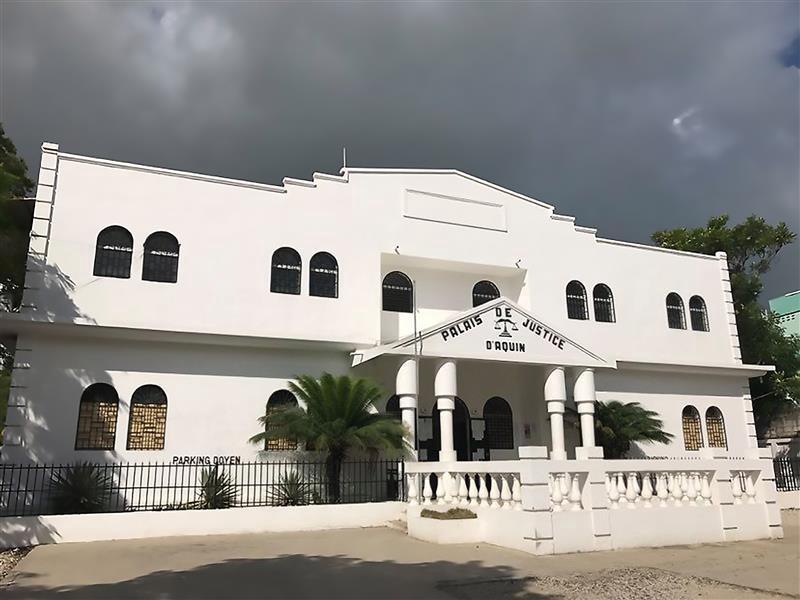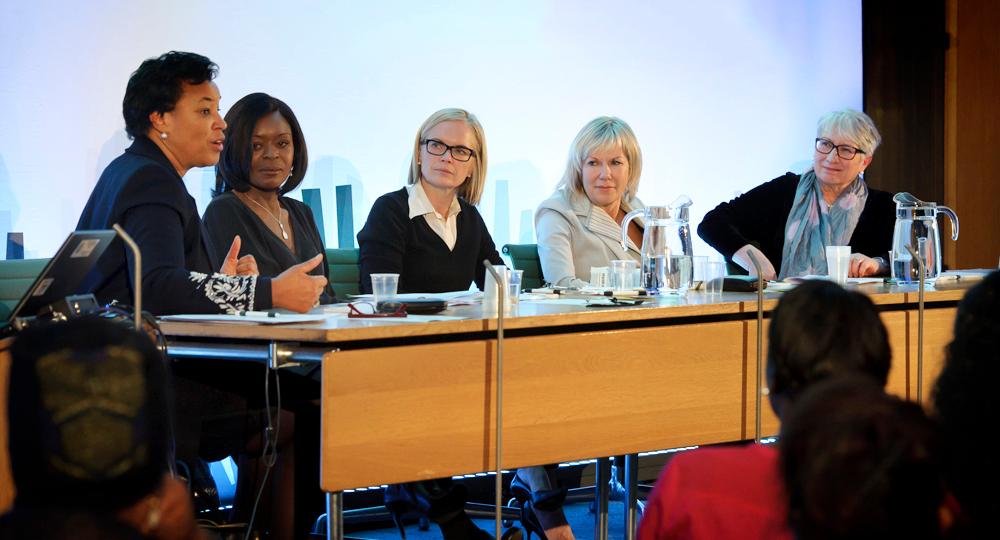Main points
- The literature on gender and corruption finds that corrupt recruitment practices tend to hamper women’s access to decision-making roles.
- In Haiti, direct appointments to the judiciary are highly politicised and largely determined by male-dominated power networks to which women rarely have access. This helps explain the historic underrepresentation of women in the country’s judiciary.
- Newer reforms, aimed at creating a more professional and independent Haitian judiciary, have introduced appointment procedures that focus more on the candidate’s abilities. In turn, this has diminished the importance of male-dominated power networks.
- A by-product of these reforms has been an increase in the proportion of women judges – from 2% in the mid-1990s to 12% today.
- Hence, where recruitment to the judiciary is based on formal and merit-based qualifications rather than more informal arrangements, it is easier for women to gain access.


